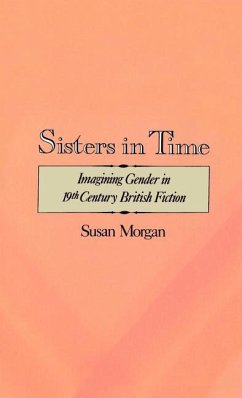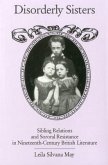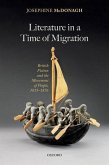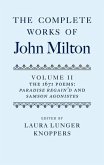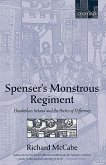Morgan's book begins with the fact that in a culture where women, both in life and in art, have continually been conceived of as less central to human concerns than men, one of the major periods of fiction should be so rich in novels that locate their centre of consciousness in women. The nineteenth century, the great age of British novels, is also the age of the great heroines, and this book examines why. Its essential argument is that the great march of British heroines in the nineteenth century exists in part because it was through women leads that writers, both male and female, could successfuly dramatize their pervasive concerns about history and community progress. The novels share the historical consciousness that the future must not repeat the past, and basic to that consciousness is the notion that traditional definitions of gender must not also be repeated. To change means to change what we mean by masculine and feminine, male and female. The further question these novels deal with is how rearranging such definitions can also rearrange relations between characters and, both inside and outside fiction, can change the relations between public and private events.
Asking why the 19th-century British novel features heroines, and how and why it features "feminine heroism," Susan Morgan traces the relationship between fictional depictions of gender and Victorian ideas of history and progress. Morgan approaches gender in selected 19th-century British novels as an imaginative category, accessible to authors and characters of either sex. Arguing that conventional definitions of heroism offer a fixed and history-denying perspective on life, the book traces a literary tradition that represents social progress as a process of feminization. The capacities for flexibility, mercy, and self-doubt, conventionally devalued as feminine, can make it possible for characters to enter history. She shows that Austen and Scott offer revolutionary definitions of feminine heroism, and the tradition is elaborated and transformed by Gaskell, Eliot, Meredith, and James (partly through one of his last "heroines," the aging hero of The Ambassadors.) Throughout the study, Morgan considers how gender functions both in individual novels and more extensively as a means of tracing larger patterns and interests, especially those concerned with the redemptive possibilities of a temporal and historical perspective.
Hinweis: Dieser Artikel kann nur an eine deutsche Lieferadresse ausgeliefert werden.
Asking why the 19th-century British novel features heroines, and how and why it features "feminine heroism," Susan Morgan traces the relationship between fictional depictions of gender and Victorian ideas of history and progress. Morgan approaches gender in selected 19th-century British novels as an imaginative category, accessible to authors and characters of either sex. Arguing that conventional definitions of heroism offer a fixed and history-denying perspective on life, the book traces a literary tradition that represents social progress as a process of feminization. The capacities for flexibility, mercy, and self-doubt, conventionally devalued as feminine, can make it possible for characters to enter history. She shows that Austen and Scott offer revolutionary definitions of feminine heroism, and the tradition is elaborated and transformed by Gaskell, Eliot, Meredith, and James (partly through one of his last "heroines," the aging hero of The Ambassadors.) Throughout the study, Morgan considers how gender functions both in individual novels and more extensively as a means of tracing larger patterns and interests, especially those concerned with the redemptive possibilities of a temporal and historical perspective.
Hinweis: Dieser Artikel kann nur an eine deutsche Lieferadresse ausgeliefert werden.

